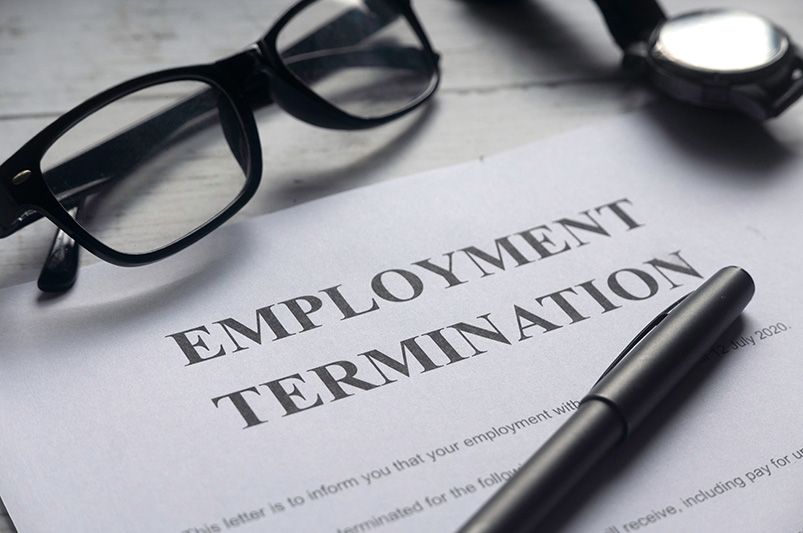Disability Discrimination at Work: What California Employees Should Know
Published: 08/10/2025 | Updated: 18/12/2025
Workplaces should be spaces of equal opportunity — where talent, not limitations, defines success. Yet, many Californians with disabilities face subtle or blatant discrimination that hinders their ability to thrive. Whether it’s being passed over for promotions, denied reasonable accommodations, or wrongfully terminated, disability discrimination remains one of the most common workplace violations in California.
This guide will help you understand your rights, identify red flags, and know what to do if your employer fails to comply with state and federal disability laws. JusticeGuys is here to help you navigate these complex protections and connect you with attorneys who specialize in employment discrimination cases.
Understanding Disability Discrimination
Disability discrimination occurs when an employer treats an employee or job applicant unfairly because of a physical or mental disability, medical condition, or perceived impairment. It’s illegal under both California’s Fair Employment and Housing Act (FEHA) and the Americans with Disabilities Act (ADA).
Common examples include:
-
Refusing to hire a qualified applicant with a disability.
-
Denying reasonable accommodations that would allow someone to perform their job.
-
Harassing or ridiculing an employee due to their medical condition.
-
Demoting or firing someone because of time off needed for treatment or recovery.
Under the law, employers must evaluate a person based on their qualifications and ability to perform essential job duties, not their diagnosis or medical limitations.
The Legal Framework: FEHA vs. ADA (Plain-Language Breakdown)
Both FEHA (California) and ADA (Federal) prohibit disability discrimination — but FEHA offers broader protection. Here’s how they compare:
| Feature | FEHA (California Law) | ADA (Federal Law) |
|---|---|---|
| Who’s Covered | Employers with 5 or more employees | Employers with 15 or more employees |
| Protected Individuals | Includes those with physical or mental disabilities, medical conditions, or perceived impairments | Similar scope, but more narrowly defined |
| Reasonable Accommodation | Required, unless it causes undue hardship to employer | Same principle, but FEHA defines hardship more strictly |
| Leave & Flexibility | Often overlaps with CFRA and paid sick leave laws | ADA covers accommodation, not paid leave |
| Agency Enforcement | Department of Fair Employment and Housing (DFEH) → now the Civil Rights Department (CRD) | Equal Employment Opportunity Commission (EEOC) |
Plain language version:
-
FEHA = California’s version of the ADA, but even stronger.
-
ADA = Federal protection for disabled employees nationwide.
-
Both make it illegal to discriminate based on disability and require reasonable accommodations.
-
Under FEHA, even small businesses must comply.
What Counts as a “Disability” Under the Law?
You don’t need to have a visible impairment to be protected. A “disability” includes:
-
Physical conditions: Mobility limitations, chronic illnesses (like diabetes or epilepsy), or injuries.
-
Mental conditions: Depression, anxiety, PTSD, or learning disabilities.
-
Medical conditions: Cancer, genetic disorders, or other serious health conditions.
-
Perceived disabilities: When an employer assumes you’re disabled — even if you’re not — and discriminates because of it.
The key standard is whether your condition limits a major life activity, such as walking, working, learning, or communicating.
The Right to Reasonable Accommodation
A reasonable accommodation is any change that enables a qualified employee with a disability to perform their job. Employers are required to provide accommodations unless it causes “undue hardship” (significant difficulty or expense).
Examples of Reasonable Accommodations:
-
Modified work schedules or remote work options
-
Assistive devices or accessible workspaces
-
Additional rest breaks or time off for medical appointments
-
Job restructuring (reassigning non-essential tasks)
-
Providing readers, interpreters, or adaptive technology
Important: Engage in the “Interactive Process”
California law requires employers and employees to work together in good faith to find suitable accommodations. This is called the interactive process, and failing to participate can itself violate the law.

Signs of Disability Discrimination
It’s not always obvious when discrimination occurs. Look out for these common patterns:
-
Sudden poor performance reviews after disclosing a disability.
-
Being excluded from meetings or projects.
-
Derogatory jokes or comments about your condition.
-
Denied promotions or raises despite strong performance.
-
Termination soon after requesting accommodation.
If any of these sound familiar, it’s time to document what’s happening and explore your legal options.
How to Protect Yourself
1. Document Everything
Keep detailed notes of discriminatory comments, denied accommodations, or sudden changes in treatment. Save emails, memos, or messages that show bias or retaliation.
2. Request Accommodation in Writing
Always make accommodation requests in writing and specify what changes you need. This creates a record of your request and your employer’s response.
3. Report Internally
Most companies have HR or compliance departments. Report issues through official channels first — it strengthens your case if legal action becomes necessary.
4. File a Complaint
If your employer doesn’t act, you can file a complaint with:
-
California Civil Rights Department (CRD) — within 3 years of the incident.
-
EEOC — within 300 days for ADA claims.
Both agencies can investigate, mediate, and issue “Right-to-Sue” letters allowing you to pursue a civil case.
5. Consult a Lawyer
Disability discrimination cases can be complex. An employment attorney helps you understand your rights, collect evidence, and determine damages for emotional distress, lost wages, and punitive compensation.
Retaliation Is Also Illegal
If your employer punishes you for asserting your rights — for example, by cutting hours, demoting you, or firing you — that’s retaliation, which is also prohibited under FEHA and the ADA.
You cannot be lawfully punished for:
-
Requesting an accommodation.
-
Filing a complaint or lawsuit.
-
Participating as a witness in someone else’s claim.
The JusticeGuys Advantage
When you’ve been treated unfairly because of a disability, you don’t have to navigate the system alone. JusticeGuys connects you with lawyers who handle disability discrimination cases across California — lawyers who understand both the emotional impact and the legal nuances of your situation.
With one click, you can be matched to an attorney who:
-
Reviews your case for free.
-
Explains your options under FEHA and ADA.
-
Pursues compensation for back pay, emotional distress, and attorney’s fees.
Find a Disability Discrimination Lawyer Now — because every worker deserves a fair chance.
Downloadable PDF
Know Your Rights: Disability Discrimination in California
Your Guide to Understanding and Protecting Disability Rights at Work
Download this easy-to-read guide covering FEHA and ADA protections, reasonable accommodation examples, and step-by-step instructions for filing a complaint. Whether you’re facing subtle bias or outright discrimination, this resource will help you take the next step confidently.
Download the Free Disability Discrimination in California PDF Guide
5 FAQs About Disability Discrimination in California
1. What’s the difference between FEHA and the ADA?
Both laws protect employees with disabilities, but FEHA (California’s law) applies to smaller employers and generally offers stronger protections than the federal ADA.
2. Can my employer deny my accommodation request?
Only if providing it would cause an undue hardship — meaning it’s too difficult or expensive. Otherwise, they must find a reasonable solution through the interactive process.
3. Do I have to tell my employer about my disability?
You’re not required to disclose medical details unless you’re asking for an accommodation. Even then, you only need to provide documentation that explains the functional limitations, not your diagnosis.
4. Can I be fired while on medical leave for my disability?
Employers can’t legally terminate you because of your disability or need for leave. If you’re let go while out for treatment, that may be considered retaliation or discrimination.
5. How can JusticeGuys help?
JusticeGuys connects you with California employment attorneys who specialize in discrimination claims, helping you understand your rights and take action quickly.


